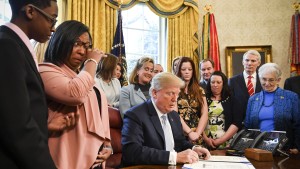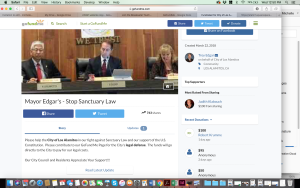
Photo from the Human Rights Foundation as reported in The Daily Caller on 5/22/18.
A self-described whistleblower is using a racketeering law, usually affiliated with prosecution of the Mafia, to sue two founders of Fusion GPS in a civil suit claiming a conspiracy of retaliation.
“A prominent human rights activist is suing two of the founders of Fusion GPS and several Venezuelan businessmen under a statute usually associated with the Mafia,” reports The Daily Caller, a conservative American news and opinion website. “Thor Halvorssen, the president of the Human Rights Foundation, claims that Glenn Simpson and Peter Fritsch, two former Wall Street Journal reporters who founded Fusion, engaged in a conspiracy to retaliate against him for blowing the whistle on one of Fusion’s clients, a Venezuelan power plant company called Derwick Associates.”
Halvorssen filed his lawsuit under the Racketeer Influenced and Corrupt Organizations Act (RICO) statute.
The Daily Caller reports, “Mostly linked to organized crime cases, RICO can also be used in civil cases against legitimate businesses. Halvorssen’s case rests on the theory that Derwick and Fusion GPS engaged in a conspiracy to intimidate a whistleblower, which Halvorssen considers himself to be because he has provided information about an alleged Derwick bribery scheme to federal authorities. …”
Politico reported on a separate Fusion GPS controversy in January, in which Fusion GPS co-founder Glenn Simpson urged lawmakers “to look into what he said were ties between President Donald Trump and Russian money laundering.”
Fusion GPS leapt into headlines because of the firm’s dossier, compiled by former British spy Christopher Steele.
According to The Daily Caller, “Halvorssen’s suit does not mention Fusion GPS’s most infamous project: the Steele dossier.”
Halvorssen’s suit claims the two Fusion founders were hired to produce a dossier and a media campaign “to depict Halvorrsen as a pedophile, heroin addict, and embezzler of the Foundation’s money.”






